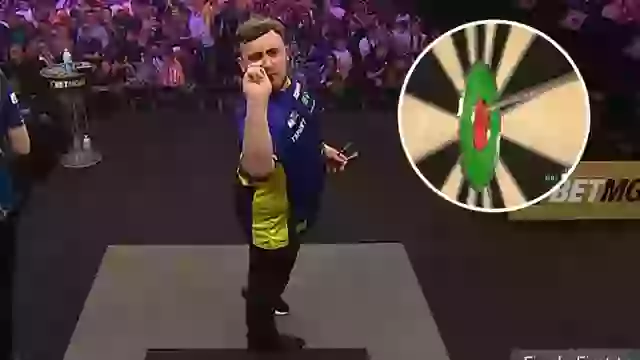
As the 2025 Premier League Darts final electrified London’s O2 Arena, fans marveled not only at Luke Humphries’ thrilling 11-8 victory over Luke Littler but also at the seamless television coverage that captured every dart’s flight with uncanny precision. The cameras, zooming in on the exact section of the dartboard moments before each throw, seemed almost psychic in their accuracy. This magic is the work of a little-known but crucial figure in darts broadcasting: the spotter. These unsung heroes, often experienced referees, anticipate where a dart will land before it leaves the player’s hand, ensuring viewers at home miss none of the action.
The role of a spotter is a high-pressure blend of instinct, expertise, and lightning-fast calculations. During the Premier League final, where Humphries clinched the title and completed darts’ triple crown, spotters like Huw Ware and Owen Binks were pivotal in directing the cameras to the right spot on the board. “I’m in charge of telling the cameras where the next dart’s going to land,” Ware explained, describing his role. “I’m in contact with the director, the commentators, and the cameramen, telling them which ways the players are likely to go, and I take them through dart by dart as they’re actually throwing on the oche.” This real-time coordination ensures the broadcast captures every critical moment, from Littler’s high-scoring 180s to Humphries’ clutch double 10 to seal the win.
Spotting is far from guesswork. It requires an encyclopedic knowledge of each player’s throwing style, preferred checkout routes, and even subtle cues like their body language or eye movements. For instance, during the final, Littler’s aggressive scoring and Humphries’ calculated finishes demanded split-second decisions from the spotter. “Even many darts fans have no idea my job exists,” Binks said, shedding light on the role’s obscurity. “As a spotter, I have to think faster than the darters themselves, in other words, I have to think ahead.” This foresight is based on years of experience, familiarity with standard checkout paths, and an intimate understanding of players’ habits. For example, when Humphries needed 106 to close a leg, spotters might predict a treble 20, single 14, double 16 combination, adjusting instantly if he veers off-script.
The pressure is immense, especially in a final as intense as 2025’s, where five nine-dart finishes punctuated the season, including Littler’s perfect leg against Michael van Gerwen earlier in the campaign. Spotters must anticipate not just routine throws but also these rare moments of perfection. “Every single time we’re on a checkout, you do feel a certain pressure to make sure you get it right and to get the darts in shot,” Ware noted. A mistake could mean missing a historic moment, like Littler’s 112.50 average, the highest in a Premier League final, or Humphries’ emotional triumph after a grueling 17-week season.
Keith Deller, another veteran spotter, emphasized the challenge of keeping up with unpredictable players. “You really have to be alert all the time when you’ve got the likes of Jonny Clayton, who decides to go his own ways,” he said. In the 2025 final, Humphries’ rapid throwing style tested spotters’ reflexes, as they had to anticipate his next move while he was already lining up the dart. “When you’ve got the likes of Michael Smith, who throws very quick, you’ve really got to be on your mettle,” Deller added, a sentiment that applied to Humphries’ relentless pace in the final.
The spotter’s role extends beyond technical skill to a deep connection with the sport’s rhythm and drama. Working in the production room, they wield significant influence, guiding directors who may lack darts expertise. “TV directors often have no idea what darts is about, so they follow what we say,” Binks explained. “So we have some power, but we are also under a lot of pressure. Because you are responsible.” This responsibility was evident as the cameras flawlessly tracked Littler’s attempts at doubles and Humphries’ 100th 180 of the season, ensuring fans at home felt the intensity of every throw.
The 2025 Premier League final, with its £1 million prize pot and £275,000 for the champion, showcased darts at its peak, and spotters were the invisible architects of its broadcast. Their ability to predict dart trajectories—whether Littler’s bold 155 checkout or Humphries’ steady doubles—brought the drama to life. As Binks put it, “It’s a tough job, but I love doing it. It keeps me sharp.” For fans, the spotters’ work is a reminder that behind every perfectly framed shot lies a blend of skill, instinct, and a passion for darts that rivals the players themselves.
Leave a Reply